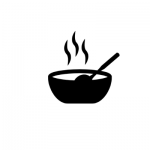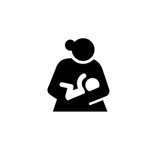
Carrying Out Both COVID-19 and Pre-Pandemic Tasks: ASHA in Himachal Pradesh
21 May 2020
The ‘Inside Districts’ series launched in April was a one-of-its-kind attempt to capture the experiences of district and Block-level officials, panchayat functionaries and frontline workers, on their challenges and best practices. As India enters the fourth phase of a country-wide lockdown, we went back to some interviewees to understand how their situation has changed. Among them is an ASHA worker in Solan, Himachal Pradesh.
There are 7,787 registered rural ASHAs in the state. Hamlets or villages are far from each other and from main towns, requiring travel. As per a recent interview by Chief Minister Jai Ram Thakur, teams involving 16,000 frontline staff (including ASHAs, Anganwadi workers and paramedics) were part of the state’s Active Case Finding campaign held in the first week of April to detect the spread of COVID-19.
The interview was originally conducted in Hindi on 16 May 2020, and has been translated.
Q: Have you got masks, sanitisers and gloves?
ASHA worker: We are making use of the ones we received previously. No, fresh ones have not been issued.
Q: Have you been provided training on COVID-19?
ASHA worker: Yes, we were called for a one-day training on symptoms and prevention, among other things.
Q: Are you able to do any of your routine work that was not related to Coronavirus these days (considering cases in Himachal aren’t too many)?
ASHA worker: Yes, along with the COVID-19 work we are also performing our regular tasks like vaccination or consultation for pregnant and lactating women (over phone now). The problem arises when people who are coming from outside start hiding their information, and it becomes difficult to track them because this is a huge area. When we fail to track these people and we get their information after a few days, we get scolded by the Department.
Q: Are people getting the promised ration? Are they satisfied with the services provided by the government?
ASHA worker: Yes. The PDS shopkeeper is going to the village and distributing ration. People are satisfied because they don’t have to go to the shop anymore to collect ration.
Q: What is the government doing for cases that do not have a ration card?
ASHA worker: I have not seen provisions for people, that is those who do not have ration cards. Communities are contributing ration for these people.
The ASHA is a health activist in the community whose role is to create awareness on health and its social determinants and mobilise the community towards local health planning and increased utilisation of existing health services. The ASHA works as part of the National Health Mission (NHM) under the Ministry of Health and Family Welfare. The ASHA’s role involves counselling, taking people for referrals, mobilising the community for various health initiatives, and liaising with various officers at the village-level to improve health and nutrition services. The ASHA has to work closely with the Auxiliary Nurse Midwife (ANM) in the health department and the Anganwadi Worker (AWW) – key frontline functionaries for the Ministry of Women and Child Development.
Also Read: Perspective of an ANM in Maharashtra
Download and share illustration: The Forest Voyage





